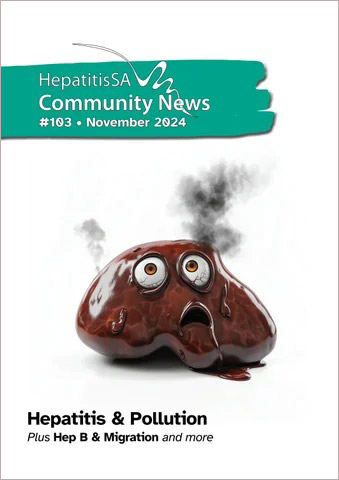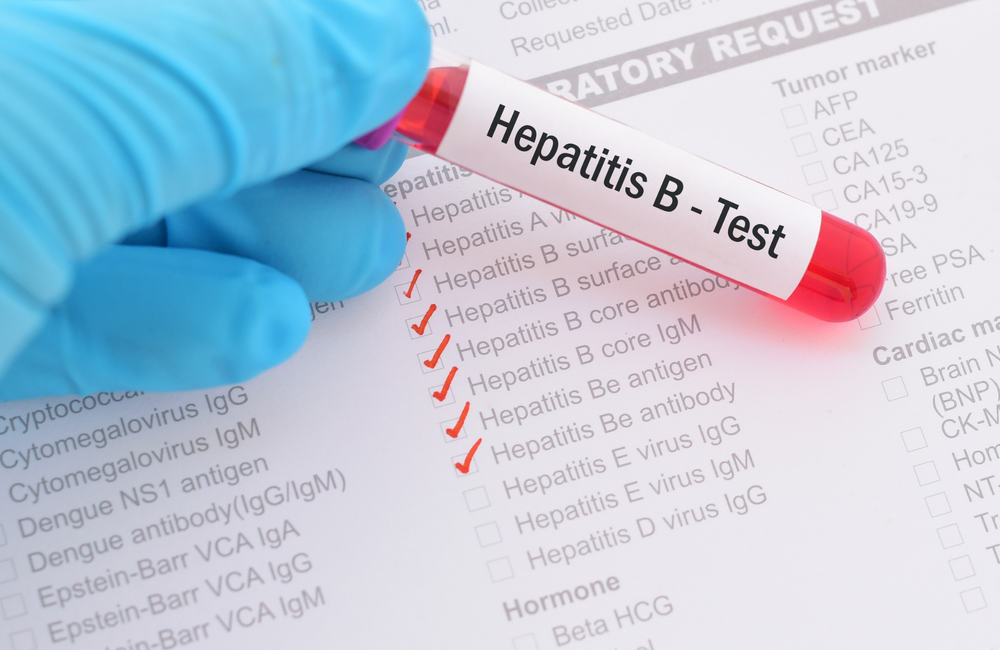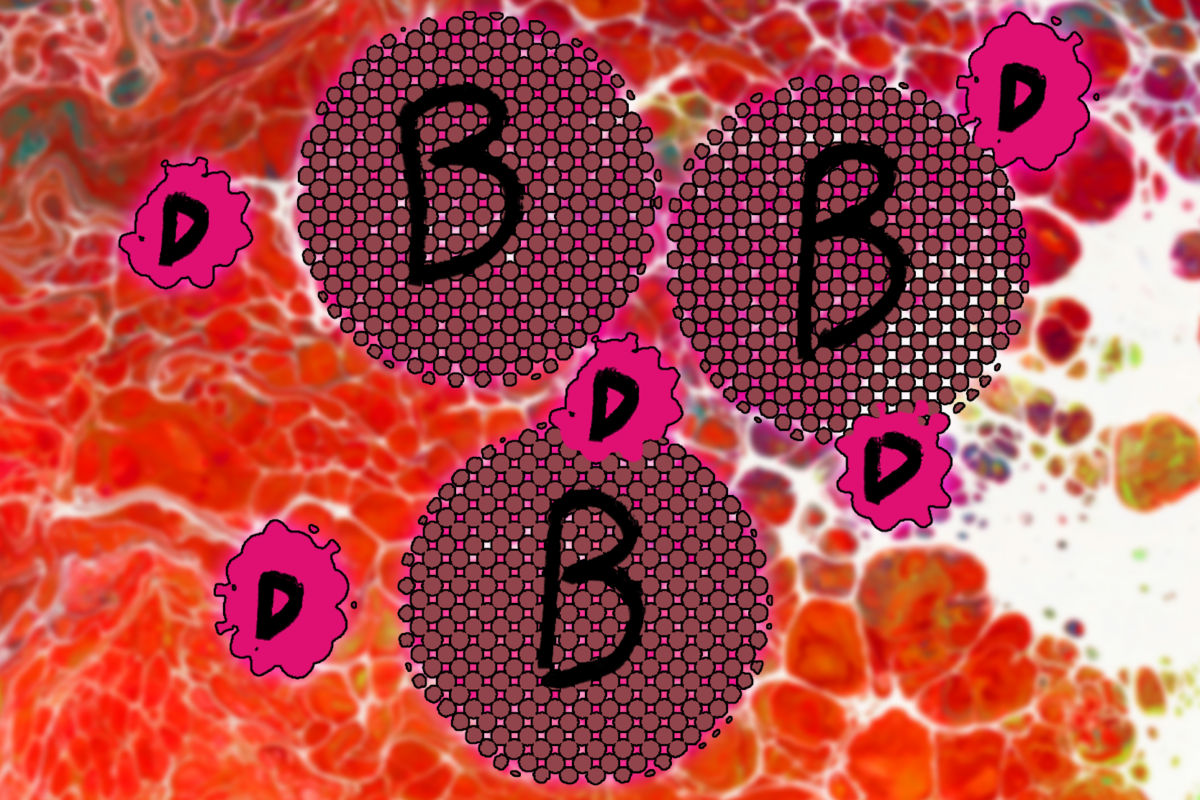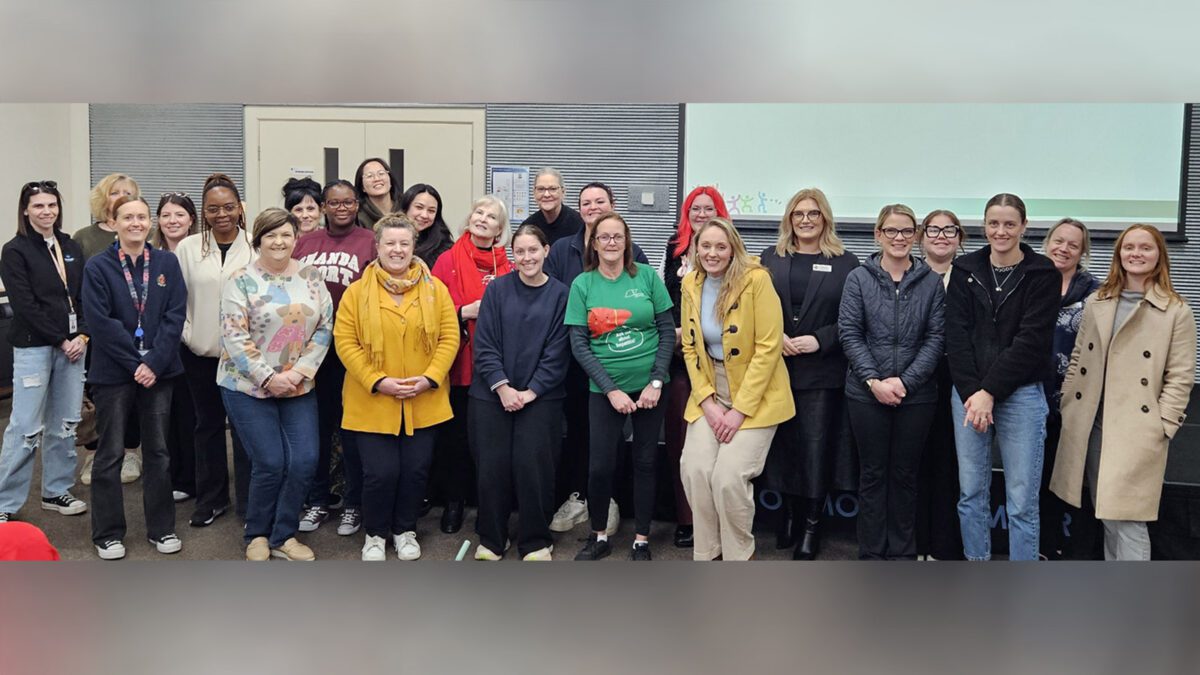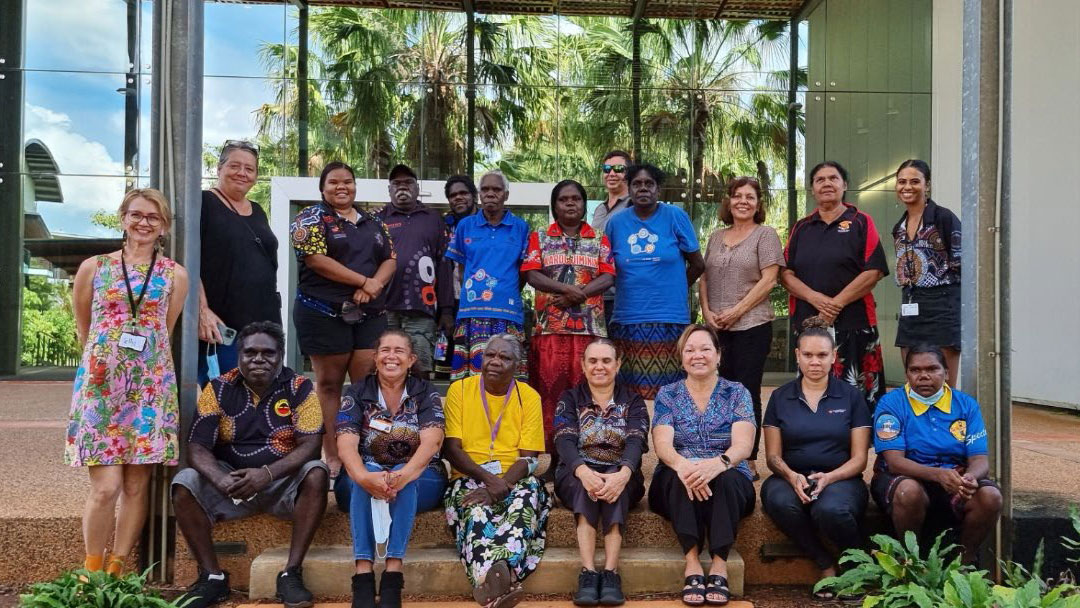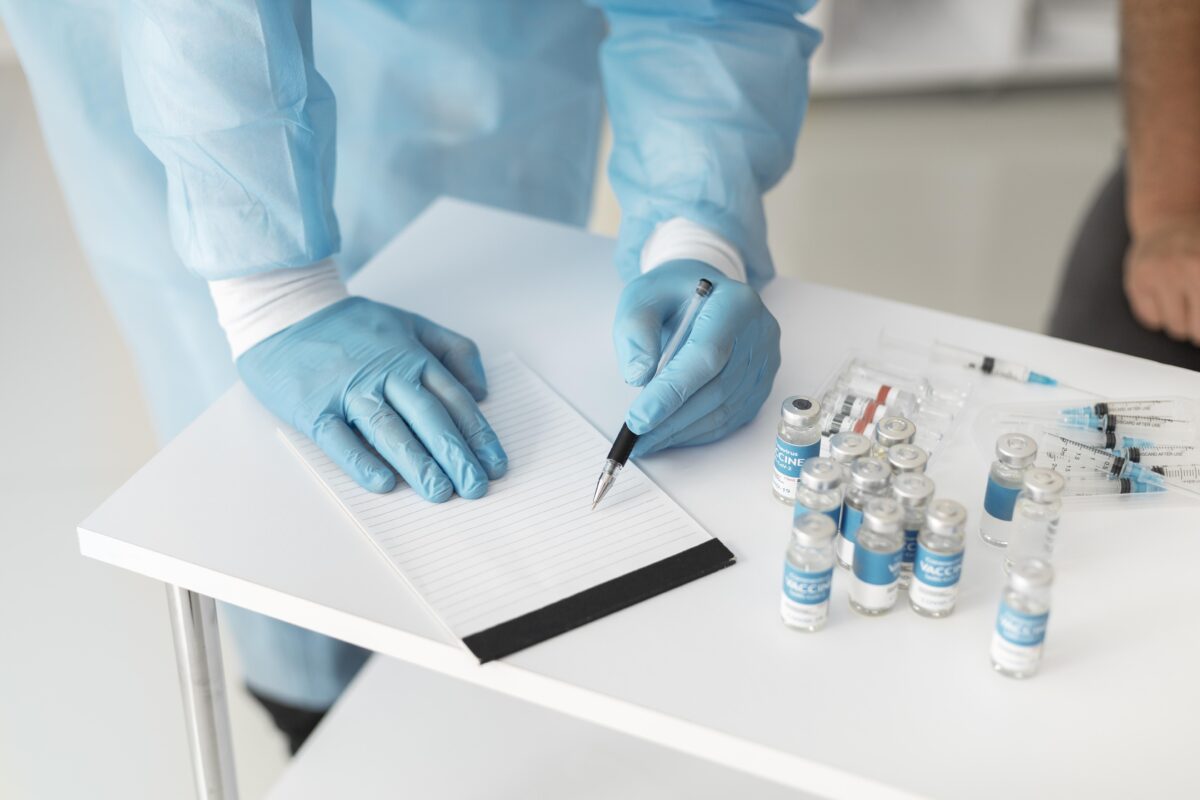Blood safety and viral hepatitis education and training are now a requirement for all South Australian Police operational personnel. After a year of negotiations with SA Police Training and Development Branch, Hepatitis SA has successfully implemented blood safety and viral hepatitis training and education sessions to all operational SA Police personnel in an ongoing arrangement.
The Blood Safety & Viral Hepatitis education package has been given its own SA Police Health Safety and Welfare code. This is significant as it means all operational personnel are required to undertake this training. Officers have a five-year period in which to complete the full list required training.
Police officers come into contact with people living with blood borne viruses. Knowing what risks are real, what are myths and how to be blood safe, is important for them to handle situations with understanding and without fear.

People with a lived experience of a blood borne virus often face stigma and discrimination in a range of settings, including with the criminal justice system.
In the past Hepatitis SA’s Education Team have delivered training and education to SA Police, but it had always been a little ad hoc without any structured co-ordination. With the incorporation of the new Blood Safety & Viral Hepatitis education package developed by Hepatitis SA in collaboration with SA Police, this has now changed.
The training discusses all things blood-borne virus, including transmission and treatment, as well as the laws relating to stigma and discrimination, including the amendments made to the Criminal Law (Forensic Procedures) Act 2007 (via the Criminal Law (Forensic Procedures) (Blood Testing for Diseases) Amendment Bill 2015), which has been in place in South Australia since 2016. The package has an operational focus to make it relevant and engaging for participants.
face-to-face is preferred so robust discussions can take place
Training is delivered face-to-face as part of each Local Service Areas training cycle. While the training may be provided by Hepatitis SA online, face-to-face is preferred so robust discussions can take place.
Education session run for about 40 minutes. Although this is shorter than the usual Hepatitis SA education session, our Education Team welcome the opportunity to strengthen partnership with SA Police and provide their operational personnel with best practice blood safety and viral hepatitis education.
Evaluations are conducted at the beginning and end of each session to gauge participants’ increase in general blood borne virus knowledge as well as attitudinal change to stigma questions. There is also a space for attendees to leave a comment at the completion of the training.
Outcomes
Sessions conducted thus far have shown participants have gained a strong understanding of blood borne viruses. Over 98 per cent gave correct answers to knowledge-based questions such as, ‘Is there a vaccination for hepatitis B?’ and ‘Is there a treatment to cure hepatitis C?’.
Participants also showed a strong understanding of potential stigma and discrimination with over 80 per cent answering, “no” to the question ‘Should you ask someone if they are living with a blood borne virus?’ and “yes” to ‘It is Illegal to discriminate against someone living with a blood borne virus?’
Some comments from participants include ‘Very well presented and gave information relevant to our field’, ‘Very thorough, good factual information’, and ‘The presenter was very conversant with the subject matter’.
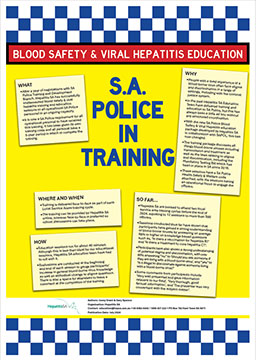
So far, Hepatitis SA are booked to attend two Local Service Area training cycles before the end of 2024. This is equivalent to 12 sessions to a total of over 500 officers. Hepatitis SA’s work on the Blood Safety & Viral Hepatitis training package was part of the posters presentation at the 14th Viral Hepatitis Conference in Darwin.
You might also like: Full Circle – how Gary wrapped his career with the incorporation of blood safety and viral hepatitis education into SAPOL training.
Last updated 5 November 2024
More from:
Enjoyed this article? Subscribe to be notified whenever we publish new stories.
Subscribe for Updates

